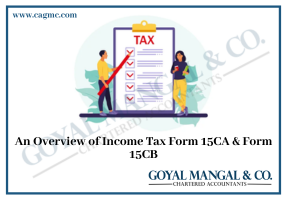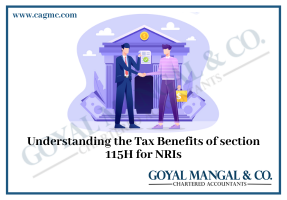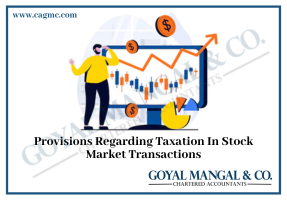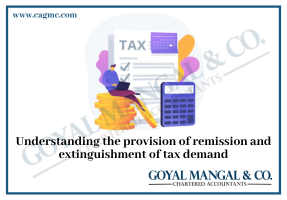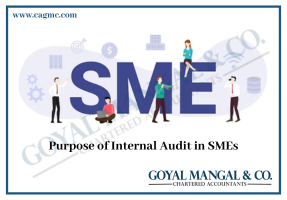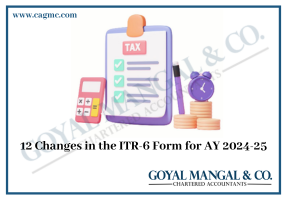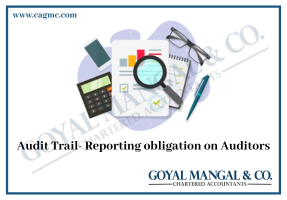
The rebate under section 87A is one of the several tax provisions that help taxpayers decrease their tax liability. This section is inserted to provide relief to individual taxpayers. You can apply for an income tax rebate under section 87A if your gross income does not exceed Rs 5 lakh per financial year. This article highlights and tries to cover all the aspects related to the rebate provision under Income Tax Act, 1961.
To provide assistance and reduce the burden on small taxpayers, the Government has introduced a tax system by introducing Section 87A in the Income Tax Act. Section 87A is introduced in the Income Tax Act by the Finance Act, 2003. According to the Income Tax Act, any Indian citizen, who has a taxable income below the exemption limit is entitled to claim a rebate for a certain amount. The rebate can be maintained against a tax liability in respect of normal taxable income, long-term capital benefits under Section 112 of the Income Tax Act (long-term capital gains). This rebate is also available for short-term capital gains on listed equity shares and equity-based schemes under Section 111A of the Act related to mutual funds, where taxes are paid at a lower rate of 15%.
Conditions to claim a tax rebate
- The individual should be residing in India.
- The gross income after claiming all exemptions and deductions is below Rs. 5 lac.
Who cannot claim?
- Non-resident of India
- The individuals having net taxable income above Rs. 5 lacs.
- Firm or a company
- Hindu undivided family
- Association of Persons (AOP)/ Body of Individuals (BOI)
Basis to claim a tax amount rebate under Section 87A
Under the existing provisions, any Indian citizen whose income is less than Rs 5, 00,000 is eligible for a tax rebate under this section. The amount of the tax rebate can either be 100% of the total tax amount calculated on the total income or Rs 12500, depending on which is less.
Previously the maximum tax rebate was 2,500 for a person with a total income of less than Rs. 3, 50,000. According to the Union’s budget, 2019, the government has continued to increase tax revenue to Rs. 5, 00,000 and a minimum tax rebate of up to Rs 12,500 under Section 87A.
Steps for filing a tax rebate under Section 87A
- Calculate your total income for the financial year.
- Lessen your tax deductions for savings, investing etc.
- Reach your total income after deducting tax.
- File your income tax return announcing your total income and tax deductions.
- Apply for a tax rebate under section 87A if your gross amount does not exceed Rs 5 lakh.
- The highest rebate under section 87A of AY 2020-21 is Rs 12,500.
| Payable tax | Rebate as per Section 87A |
| Not exceeding 12,500 | Equal to tax amount payable |
| Precisely 12,500 | Rs. 12,500/- |
| More than 12,500 |
Form for Section 87-A
To claim an exemption under Section 87A, a person must put the tax amount in the division of ‘Rebate under Section 87A while completing the income tax return under any form of ITR i.e. ITR 1, ITR2, ITR4, etc.
How does the rebate work?
People often assume that if their income does not exceed 5 lakh, they do not have to pay any taxes. This is because the average income tax rate of between 2.50 lakhs and 5 lakhs is 5% and the tax liability of 5% on 2.50 lakhs is exactly 12,500. However, if your income includes taxable income at a higher rate of 15% (which is a short-term income benefit) or 20% (other being long-term benefit), you will have to pay a certain tax even if your income does not reach 5 lac.
Rebate for FY 2019-20 (AY 2021)
Income tax deduction under 87A is alike for FY 2020-21 AY (2021-22) & FY 2019-20 AY (2020-21). In terms of section 87A, if the resident’s taxable income is up to Rs. 3.5 lakhs then you will get a benefit of Rs. 2500 or the amount of tax depending on which is less.
Remember
Individuals with a limited income have a benefit under Section 87A of the Income Tax Act, 1961 which provides a major tax-exempt. However, the following things are important to know-
- Only Indian resident taxpayers can only get a rebate under Section 87A.
- Taxpayers under the age slab of 60 and those between the ages of 60 and 80 can claim.
- Taxpayers who are 80 years of age and above cannot claim for rebate.
- The rebate will apply to the tax liability calculated before health and education leave.
- The rebate is only available if taxable income reaches INR 5 lakhs. If your taxable income exceeds INR 5 lakhs, you will have to pay tax on all income.
- If your tax debt is below the rebate rate, you will not be eligible for a refund. In such cases, the rebate will be equal to the calculated tax liability.
Final words
The Indian residents may apply for the rebate under Section 87A while filing ITR returns. To benefit from this discount your salary should not be more than Rs 5 lakhs. A rebate under section 87A is available in the form of a tax deduction. The rebate under section 87A will be less than 100% of the income tax liability or Rs. 2,500. In other words, if the tax debt exceeds Rs. 2,500, the discount will be available at a rate of Rs. 2,500 and no rebate will be obtained if the total amount of revenue (i.e. taxable income) exceeds Rs. 3, 50,000.

